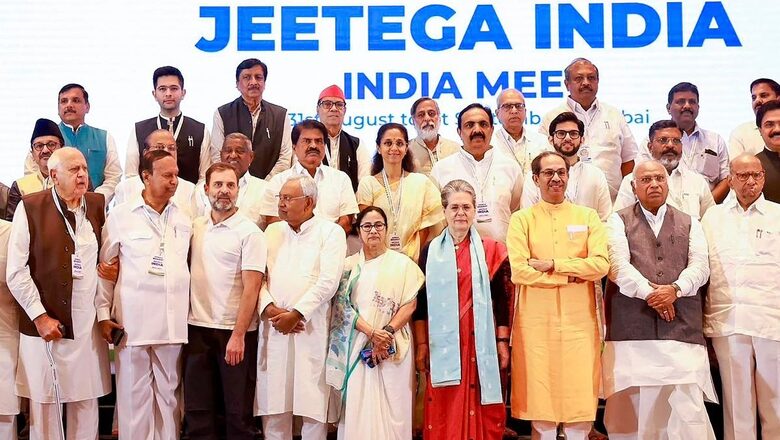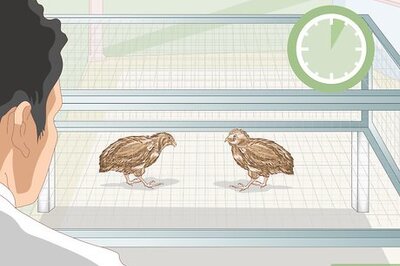
views
In the unfolding drama of Indian politics, where every move and counter-move is dissected and hotly debated, the Congress-led I.N.D.I.A bloc, a coalition of opposition political parties, has made the controversial decision to boycott 14 TV presenters, allegedly for their perceived bias. The move revealed a startling irony and threatens to undermine the very principles these politicians claim to uphold — freedom of speech and freedom of the press.
The I.N.D.I.A bloc’s announcement of an impending boycott of these 14 TV anchors has not only raised eyebrows, but also fuelled a national debate on press freedom and democratic values. The parties within this alliance have decided not to send their spokespersons to the programmes hosted by these 14 moderators, effectively removing them from the political discourse. The central paradox is palpable here. The very individuals who have stood up for freedom of speech and freedom of the press are now resorting to boycotting news anchors and revealing a somewhat intolerant side.
While I.N.D.I.A justifies its actions by citing perceived bias in reporting, it raises a troubling question: Is boycotting journalists the right course of action in a democracy that values diversity of thought and opinion?
This move has not only exposed the alliance’s hypocrisy but also serves as a stark reminder of the draconian measures taken by the Indira Gandhi-led government during the 1975-1977 Emergency, when “freedom of speech” was suspended as a fundamental right, with “freedom of the press” being the first victim.
In an increasingly polarised milieu, it is essential to understand the gravity of the actions of the I.N.D.I.A bloc. By boycotting select journalists, these political parties risk deepening fault lines in society and sending a clear message that dissenting voices will not be tolerated — a message that goes against the very essence of Indian democracy.
Memories of the Emergency era, when fundamental rights were suspended, continue to haunt the nation’s collective consciousness. During the dark days of Emergency, India witnessed a grim erosion of its democratic values. Printing presses were raided, journalists were jailed, foreign scribes were exiled and many faced threats. Journalists’ accreditations were revoked, power was cut to prevent the press, government advertisements in several publications were blocked, and the flow of information was tightly controlled by government intelligence agencies. It is a chapter in Indian history that some are reluctant to discuss, perhaps because of the reverence they have for Indira Gandhi.
It is also worth noting that despite the challenges and criticism it faces, the Modi government has not disbanded any protests during its tenure. This shows the government’s willingness to allow dissenting voices to be heard, even in the face of significant challenges.
However, the problem with the Opposition alliance is its tendency to accuse others of bias while failing to examine its own actions. Many parties within this alliance have in the past exacerbated the differences between the population by caste and religion. Although they vehemently uphold freedom of speech and freedom of the press, their actions often run counter to these principles. This inconsistency has become a recurring theme, especially after their back-to-back losses in the last two general elections.
Nevertheless, today we find ourselves in a situation where political parties, which should be the guardians of democracy, themselves take measures that threaten the freedom of the press. Individuals who rose to power through the democratic process are now undermining the very foundations of that process.
The decision to such a boycott is poised to be a self-goal, especially as India approaches crucial general elections in 2024. It would be more prudent for the alliance to take decisions that strengthen its stand in all debates and on all channels, ultimately contributing towards a just society and preserving the essence of democracy through the sacred “freedom of speech”.
It is imperative that all political parties uphold the values of democracy, including freedom of speech and freedom of the press, rather than undermine them. The press plays a vital role in holding those in power accountable and providing diverse perspectives to citizens. Any attempts to silence or marginalise the media should be viewed with utmost care as the health of Indian democracy depends on it.
Amarjeet Verma is a policy researcher and writer. Views expressed in the above piece are personal and solely that of the author. They do not necessarily reflect News18’s views.




















Comments
0 comment